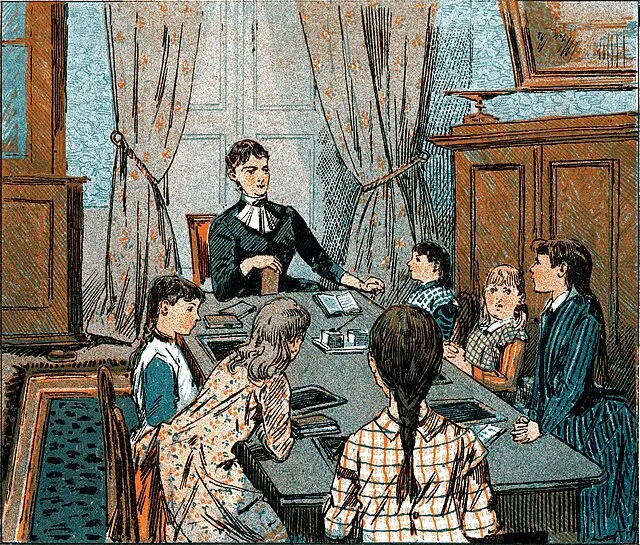Does homeschooling affect social skills? I often hear critics of homeschooling levy this question as a complaint. They wonder how children and youth can develop these social and emotional skills so necessary for success later in life who don’t spend the majority of their days around groups of their peers.
It’s a legitimate question, and social skills are, some believe, the majority of what makes or breaks a successful life. As a teacher, I completely believe in schools. After all, I got my start teaching as a school. If done well school can be beneficial to the social life of youth.
However, there’s another oft unseen side of that question which is that school can so often become Lord of the Flies. I have seen many school educated children graduate with complexes and insecurities through being bullied, bullying others, teasing, and the myriad other dysfunctional childhood behaviors. Despite the best efforts of teachers, they cannot watch all the children all the time, and many ill deeds fly under the radar in school settings.
Ok, but isn’t homeschooling avoiding social situations?
I’ve been surprised to see how many public and even private Waldorf-educated seniors graduate with issues. That is one of the reasons I first began questioning teaching in a school. By contrast, I’ve noticed over the years that the most self-confident, self-knowledgeable, and capable young adult’s I’ve met homeschooled, K-12. This shocked me in a surprising way. What was it about homeschooling that produced such whole adults, I wondered.
Contrary to the belief that homeschoolers are recluses who develop no social skills, homeschooling is rich with a variety of experiences. Typically, they interact with diverse groups including ski school, archery lessons, community band, and orchestras, eurythmy groups, farm school, theater groups, handwork groups, blacksmithing, robotics, and so on. In the community where I live, there’s so much going on for homeschoolers that one has to pick and choose what to be a part of because it would be impossible to do it all.
Homeschooling DOES affect social skills, here’s how
For me as a parent and an educator I’m homeschooling for one very important reason. While I want my child to grow up with exceptional social skills, the number one predictor of adult success is the child’s relationship with their parents during childhood. (We expand on that here.) That trumps having all the friends in the world (notwithstanding the fact that good friends, especially starting in middle school, can also be good role models). Your relationship with your child is where they learn to love themselves, or not. Why would you want to outsource that to someone who will never love your child as much as you do? Could this be why the homeschooled adults I’ve met have become such impressive human beings?
I live at a church where 90% of the children homeschool. It’s the healthiest community I’ve ever been a part of. Virtually all the children, young and old, know how to play with one another, how to relate to the adults around them, and are otherwise freed from many of the impediments mainstream life places in young souls these days. Oh, and by the way, if you think these people homeschool because they’re rich, you are wrong. This is a very humble community, economically.
My lived experience of this question, therefore, is that homeschooling is not an impediment to developing social skills. By contrast, it’s an asset.
Your choice to homeschool or not
I’m not here to preach, and I know many people out there don’t feel the luxury to homeschool. However, it doesn’t have to be either or. We have created our blocks at Enkindle Academy in a way that they can be done independently by students at home so parents can still work, if that’s what they need to do. Don’t hesitate to reach out to us with any questions about the curriculum. We are here to help.


Leave a Reply
You must be logged in to post a comment.